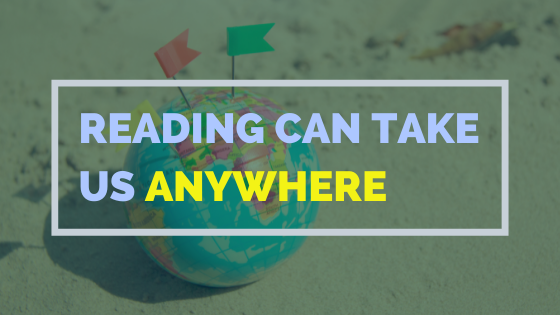2020 was quite different from the norm. Nobody ever thought that a situation which pauses the whole world would arise. What started over two years ago, has changed everyone’s daily life, routine, and habits from before the pandemic. As Covid-19 started to go wild and crazy, the world was shutting down, borders were closing between every country and life has stopped. This also heavily affected travelling. With the planes stuck on the ground, hotels closed, and travel restrictions implemented, travel and tourism became one of the most affected business sectors in the world. And the way people were travelling had changed instantly.
Are you looking for a new printing solution for your library? Then check out our free guide to see the top 5 aspects to consider when choosing your new solution! This guide comes with a fillable solution comparison table, to further ease your research. Access our guide HERE.
Changes in the type of travelling
Travelling has changed, as nobody was allowed to do it the “traditional” way. As a result, the most attainable way of travelling was to read books and get immersed in their stories and worlds. Not as if people did not use to read before the pandemic; they did, at bookshops, airports or even cafes. However, with everyone locked into their homes, suddenly everyone had more time to enjoy books and travel in their minds. The restrictions also led individuals to more self-education or self-learning books.
While reading books, the stories transport the readers from their own world to the book’s own one. It is worth to note though, this type of travelling requires people to imagine the story, be emotionally responsive to it and to become overall invested in the book.
Stories read with this level of involvement become like a movie, only even more in-depth; the readers feel the weight of every action and they can crawl under the skin of characters by being able to read their thoughts and feelings. The readers can see what the characters see, even if the author did not detail every aspect of the horizon, much like how in the real world, the brain does not need to see or process everything, it just fills in the missing gaps.
It truly is magical – even though the reader stays in the same physical space, their brain acts as if it is in an entirely different country, decade, age, lifetime, or galaxy. When people are forced to stay in one place, books can offer the escape they need. However, that is by far not the only benefit reading offers, as it can also improve the readers’ health, even while staying at home during the pandemic.
Health benefits of reading
The pandemic had negatively impacted most of our lives, as we were all cut off from the outside world, maintaining social distancing. Through reading, people could ready themselves to face the personal and external challenges they were dealing with during the lockdown(s). That being said, self-improvement is not the only benefit books offer to improve one’s well-being.
Burnout and chronic stress were more prevalent than ever (and still are) according to many health organizations. As such, finding ways to relief stress became an important part of everyone’s lives. Luckily, reading can do just that. According to research carried out by Dr. David Lewis from Mindlab International at the University of Sussex in 2009, reading as little as six minutes can reduce stress levels by 68%, making reading more effective than listening to music or taking a walk. What’s even better is that there is no requirement for the type of book one needs to read to gain these benefits – any book will do, as long as the reader is engaged with it.
The reduction in stress and anxiety caused by reading also persists for longer than the time spent reading. According to some studies, finishing a book can reduce anxiety for up to five additional days, so readers can still enjoy the benefits of reading, while taking a little break between books. Reading to gain these health benefits is often referred to as bibliotherapy.
The list of benefits does not stop there though; similarly to the muscles in our body, our minds also need exercise. Through reading, people can enhance their ability to focus, something that is actively diminishing in today’s world. Furthermore, according to Fisher Center for Alzheimer’s Research Foundation, mental stimulations like reading can help protect thinking skills and slow down late-life cognitive decline. Studies conducted by the Northcentral University show similar results in reducing the rate of memory decline.
Reading can also make people more empathetic, according to Reading Partners. They point out that specifically reading literary fiction can increase the individual’s understanding of human behavior, motivations, cultures, diversity and perspectives.
Based on a report written by Demo and The Reading Agency, reading (and audiobooks) can also significantly reduce loneliness and help alleviate social isolation, something everyone faced during the pandemic.
Read to travel, read to be healthy
Reading is a wonderful activity – it can teleport people to different countries, lands, planets or even galaxies, all while improving their current mental state and long-term well-being. And it does not even require hours of your time every day. Spending a couple minutes in one’s armchair or couch with any book they enjoy can already take you to anywhere in this or any other world.

Donata Dautaraite
Donata is a content writer for the Princh Library Blog. Princh, which is a printing solution designed specifically for and with public libraries, makes a consistent effort to provide advocacy for libraries and library professionals. The Princh blog discusses library specific topics that inform their readers of library trends, insights, technologies and more.
Recent posts
Enhancing User Experience For Libraries In The Digital Age
In this week's Princh Library Blog post, recurring guest writer Sam L. Bowman covers how your library can improve the user experience on [...]
Library Password Practices—Balancing Accessibility and Security
In this week's Princh Library Blog, recurring guest writer Nina Grant discusses a basic, but nevertheless crucial digital security principle: secure password [...]





Leave A Comment